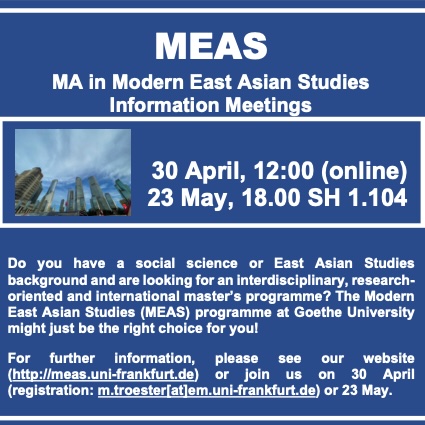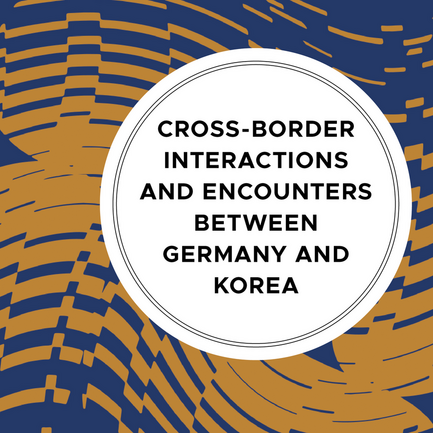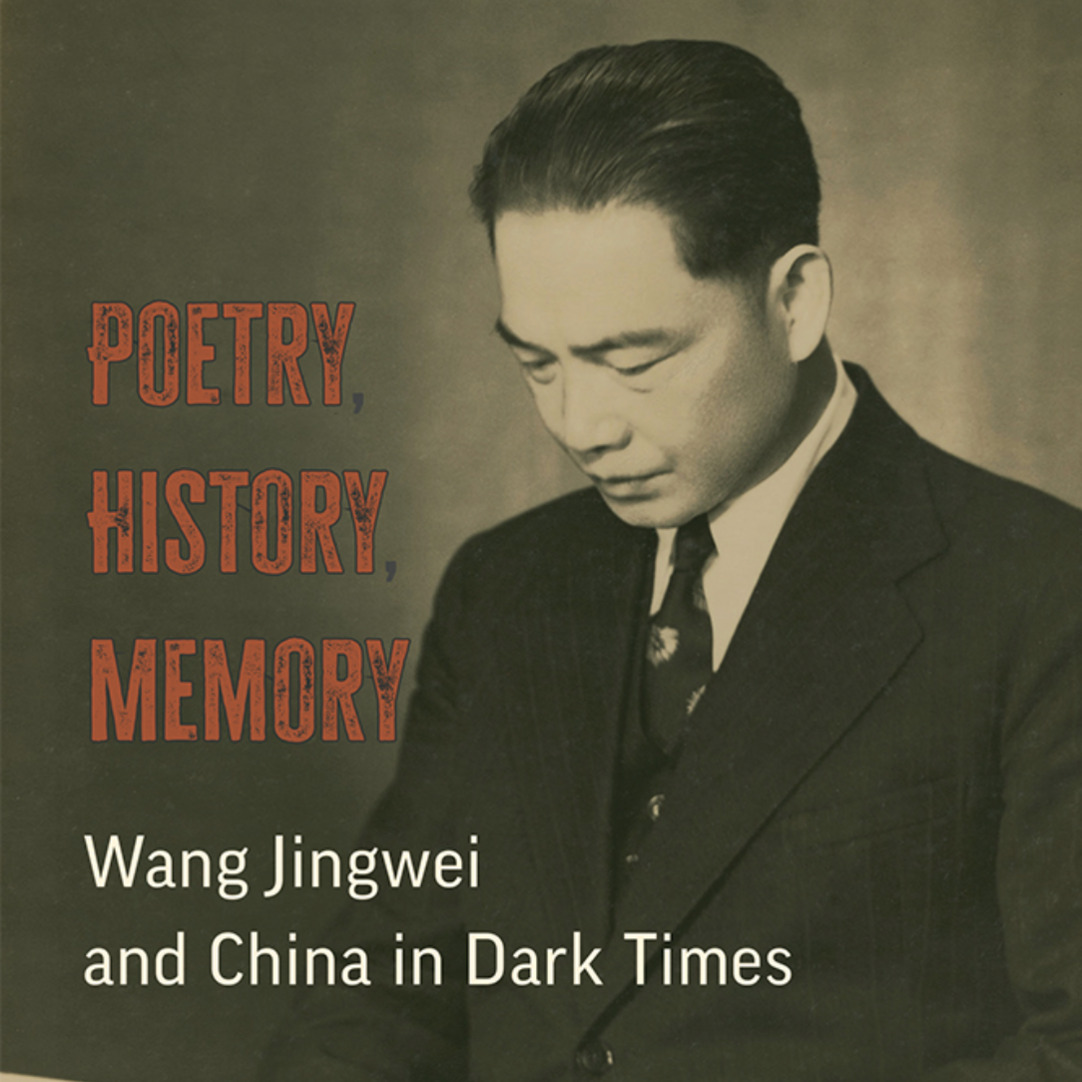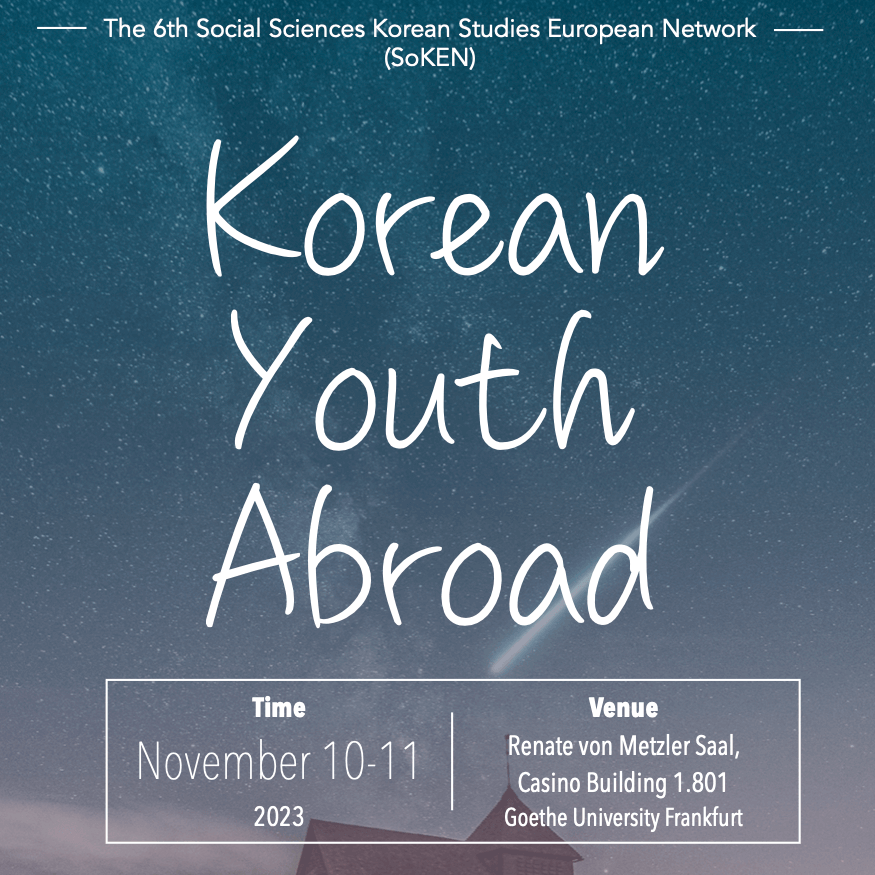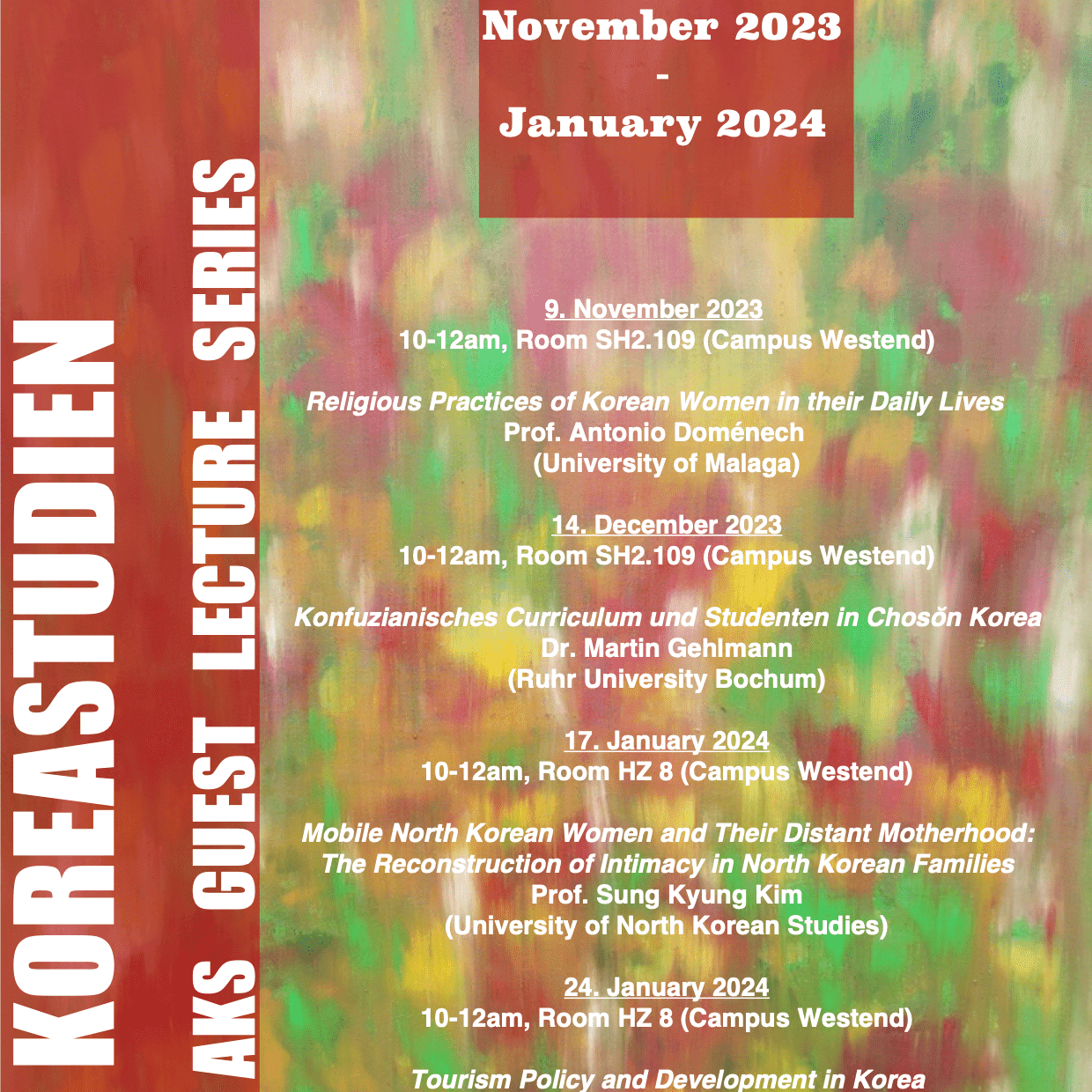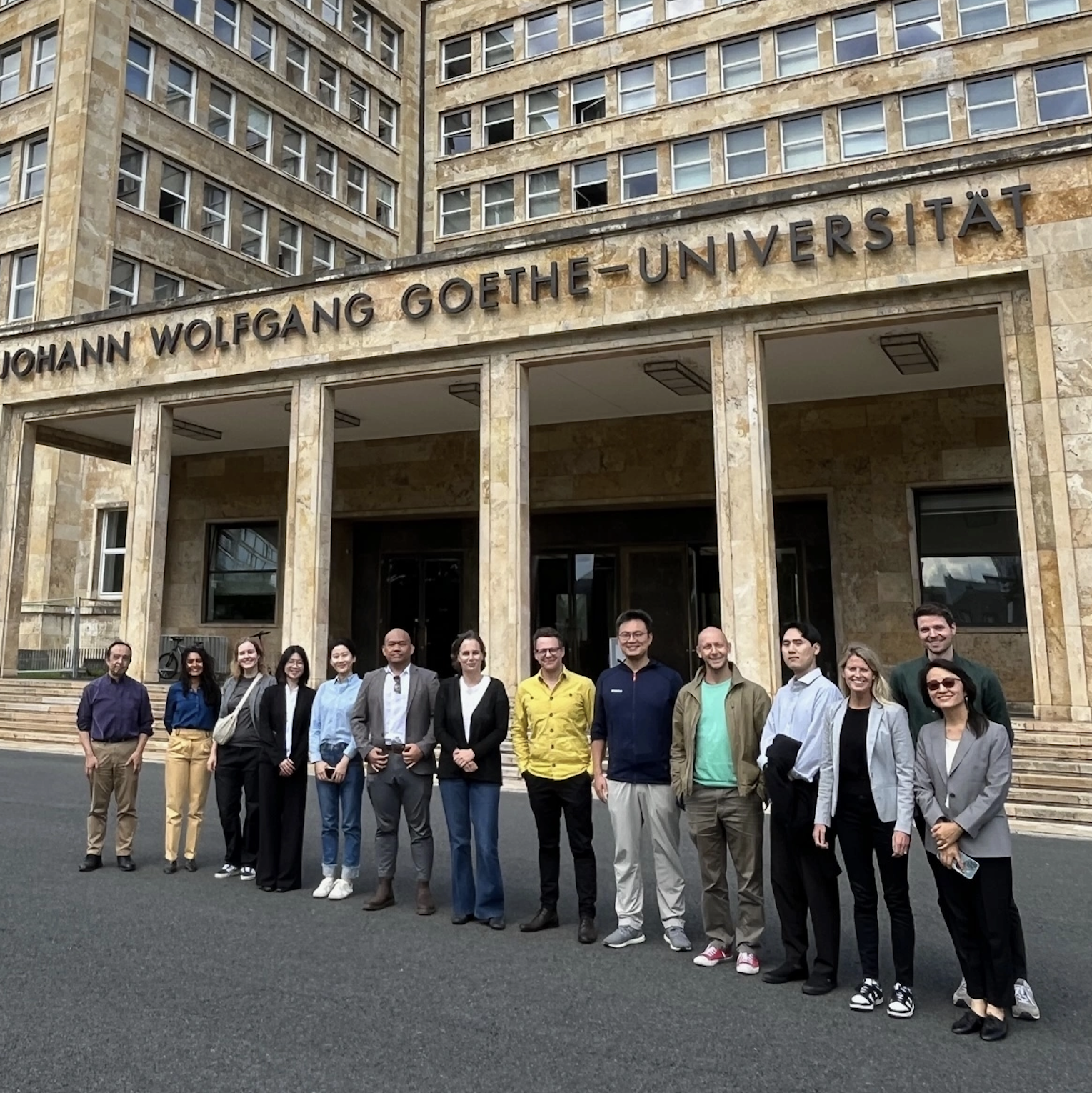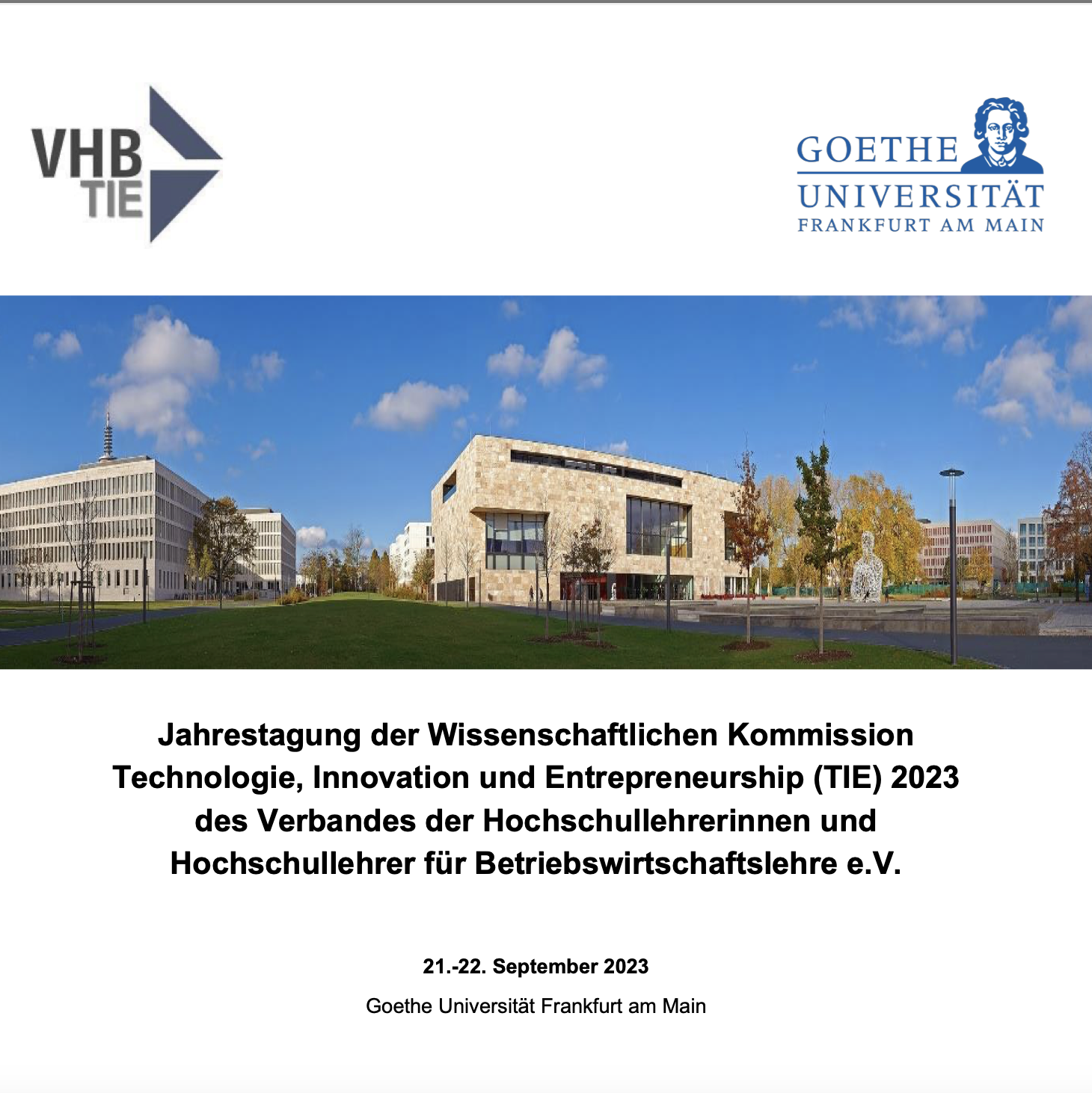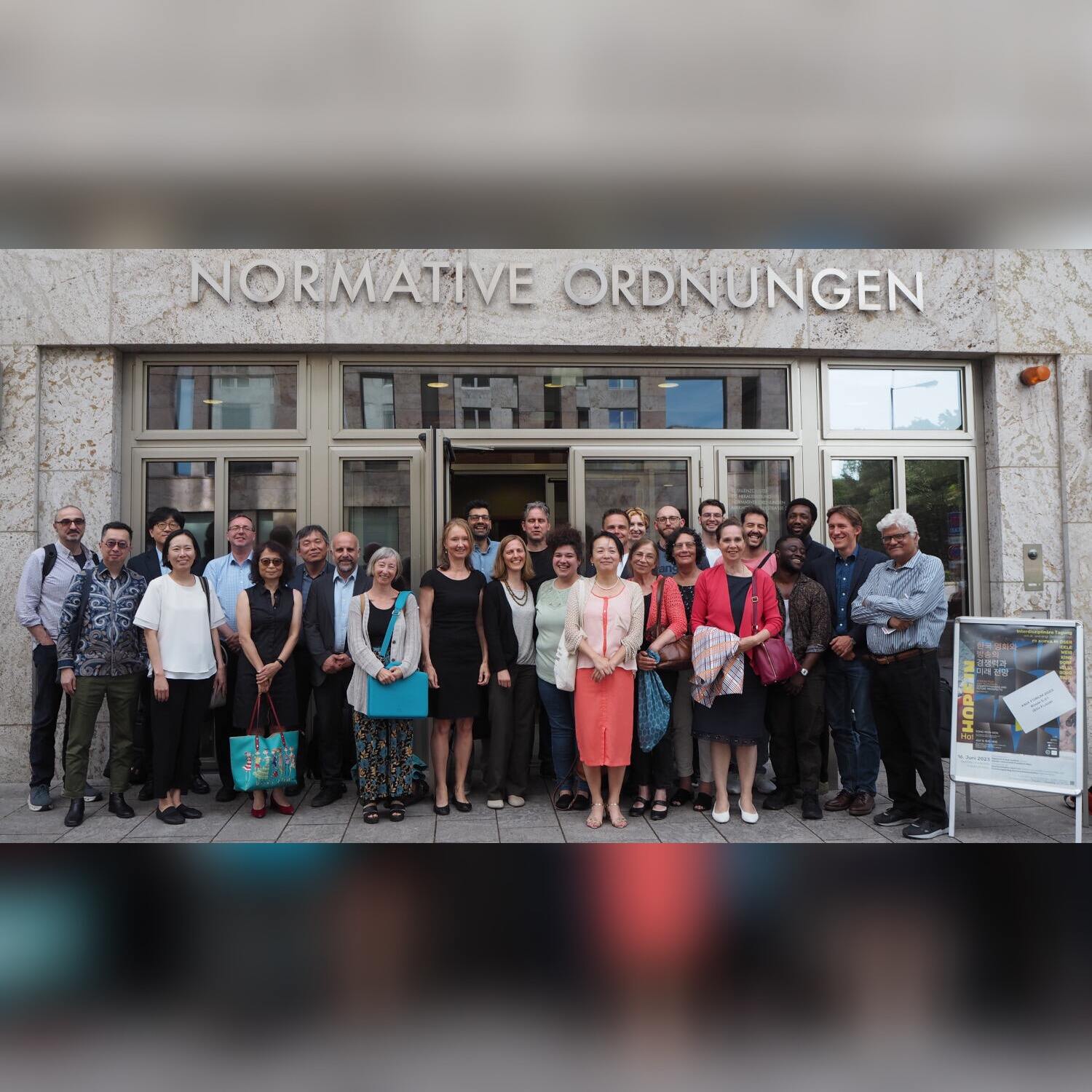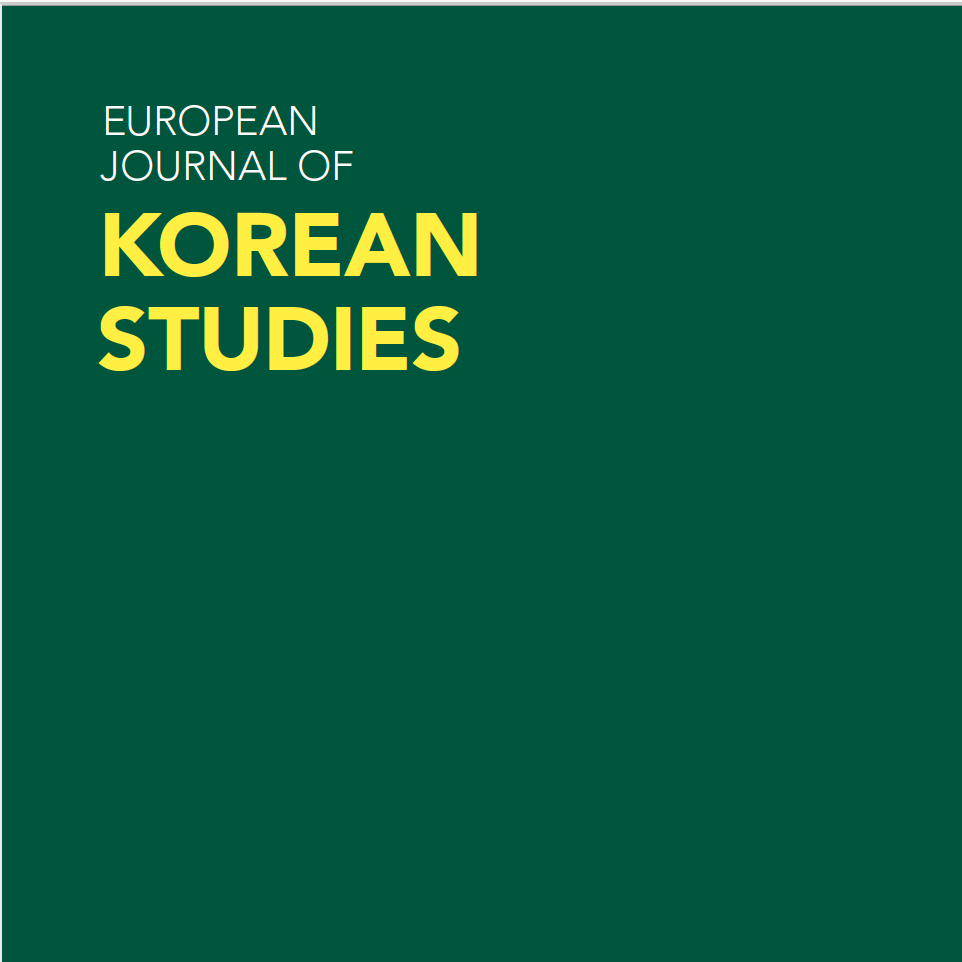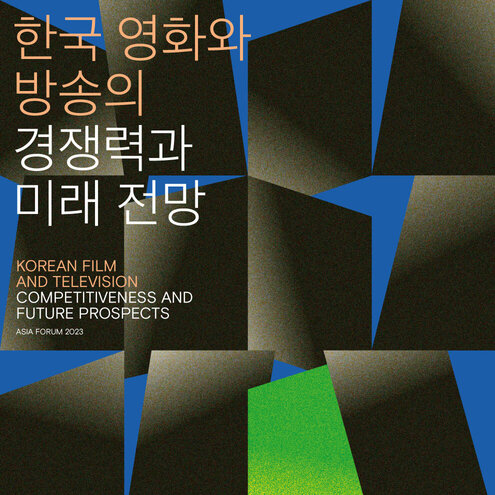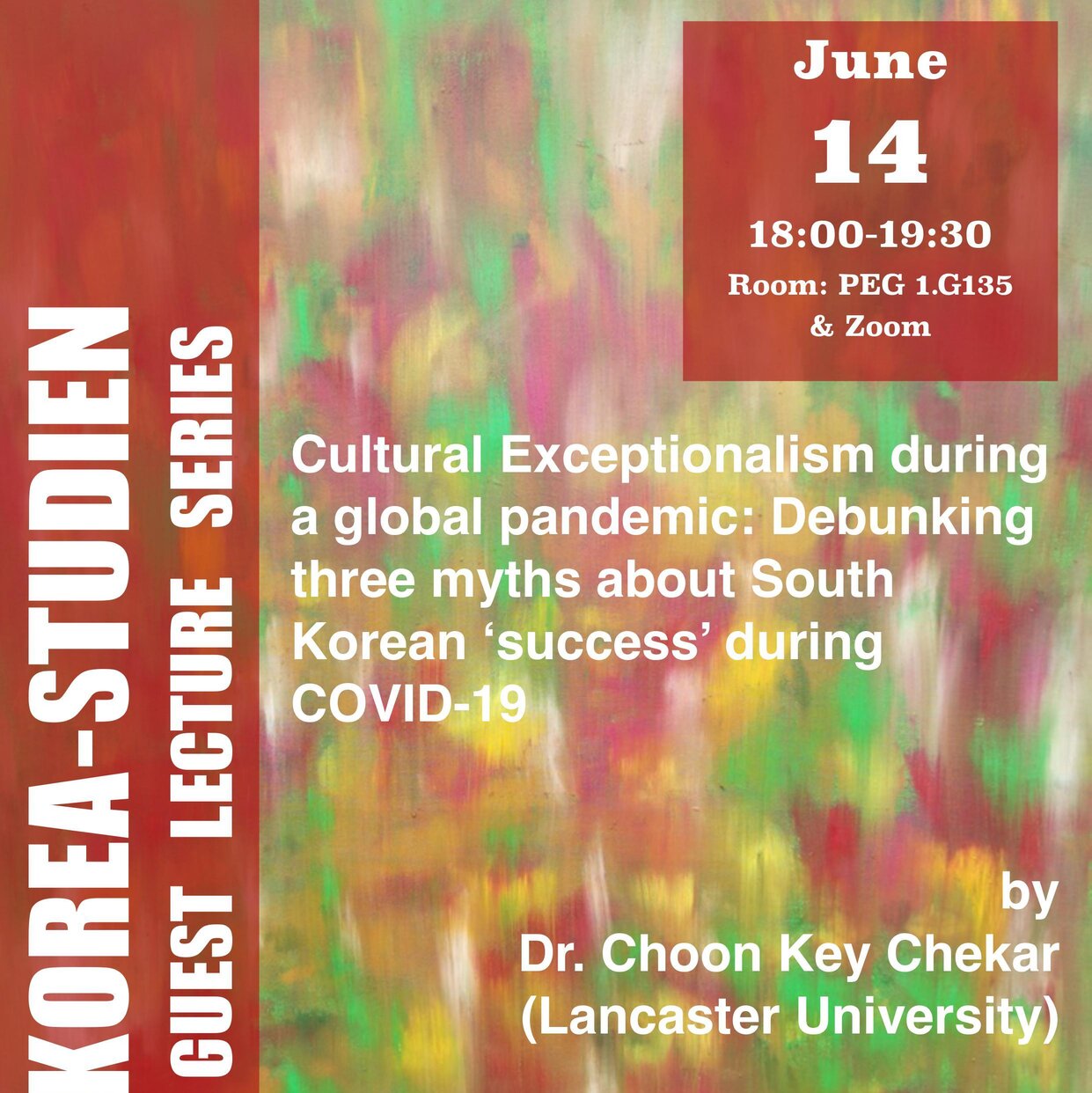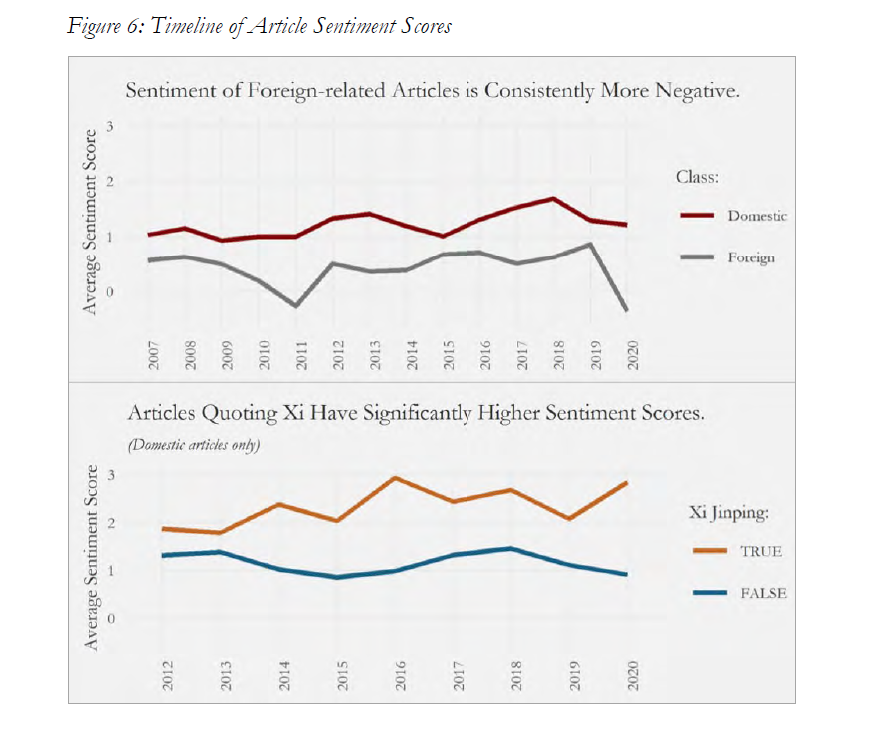News – Current Research

on IZO events and publications.
on IZO events and publications.

on IZO events and publications.
on IZO events and publications.
Search for all News
Current Research
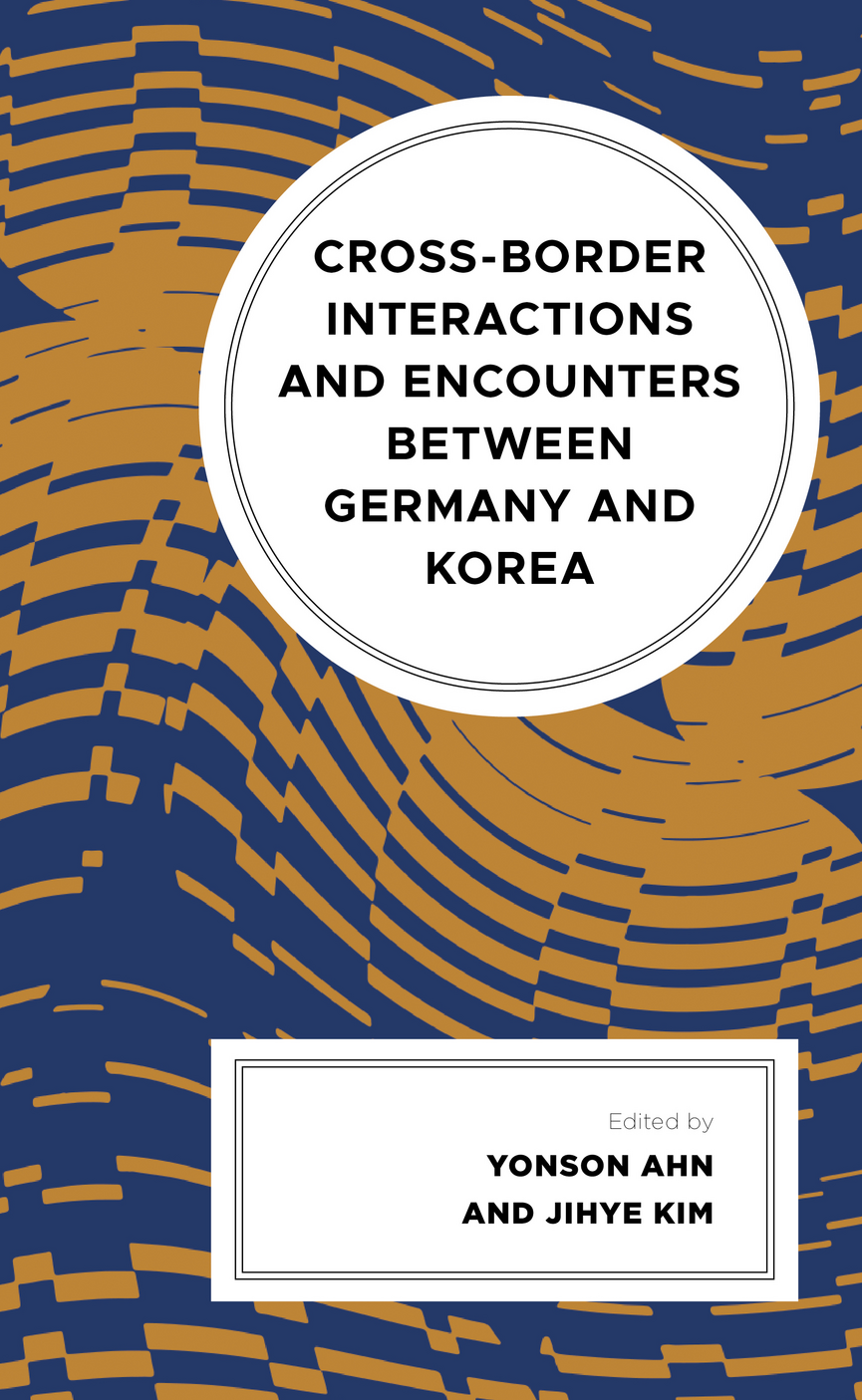
Contributors/Authors: Helen Kim, Yonson Ahn, Jaok Kwon, Jihye Kim, Jan Creutzenberg, Katharina Süberkrüb, Yuri Ko, Jin-Wook Shin, Boyeong Jeong, Hannes B. Mosler, Yvonne Schulz Zinda, Yonsuk Chae
Citation: Yonson Ahn and Jihye Kim eds. 2023. Cross-border Interactions and Encounters between Germany and Korea. Lanham: Lexington Books.
Current Research
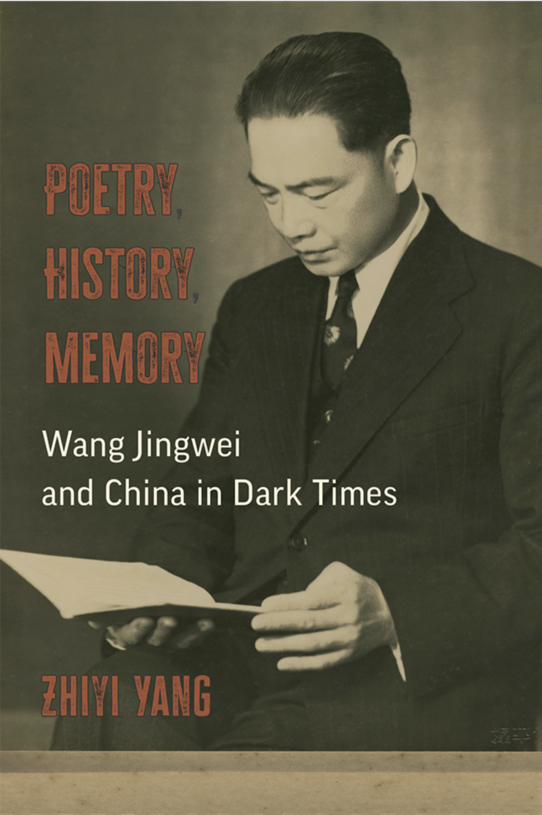
Zhiyi Yang's new monograph on Wang Jingwei, Poetry, History, Memory: Wang Jingwei and China in Dark Times was published in November 2023 by the University of Michigan Press.
Wang Jingwei, poet and politician, patriot and traitor, has always been a figure of major academic and popular interest. Until now, his story has never been properly told, let alone critically investigated. The significance of his biography is evident from an ongoing war on cultural memory: modern mainland China prohibits serious academic research on wartime collaboration in general, and on Wang Jingwei in particular. At this critical juncture, when the recollection of World War II is fading from living memory and transforming into historical memory, this knowledge embargo will undoubtedly affect how China remembers its anti-fascist role in WWII. In Poetry, History, Memory: Wang Jingwei and China in Dark Times, Zhiyi Yang brings us a long overdue reexamination of Wang's impact on cultural memory of WWII in China.
In this book, Yang brings disparate methodologies into a fruitful dialogue, including sophisticated methods of poetic interpretation. The author argues that Wang's lyric poetry, as the public performance of a private voice, played a central role in constructing his political identity and heavily influenced the public's posthumous memory of him. Drawing on archives (in the PRC, Taiwan, Japan, the USA, France, and Germany), memoires, historical journals, newspapers, interviews, and other scholarly works, this book offers the first biography of Wang that addresses his political, literary, and personal life in a critical light and with sympathetic impartiality.
Current Research
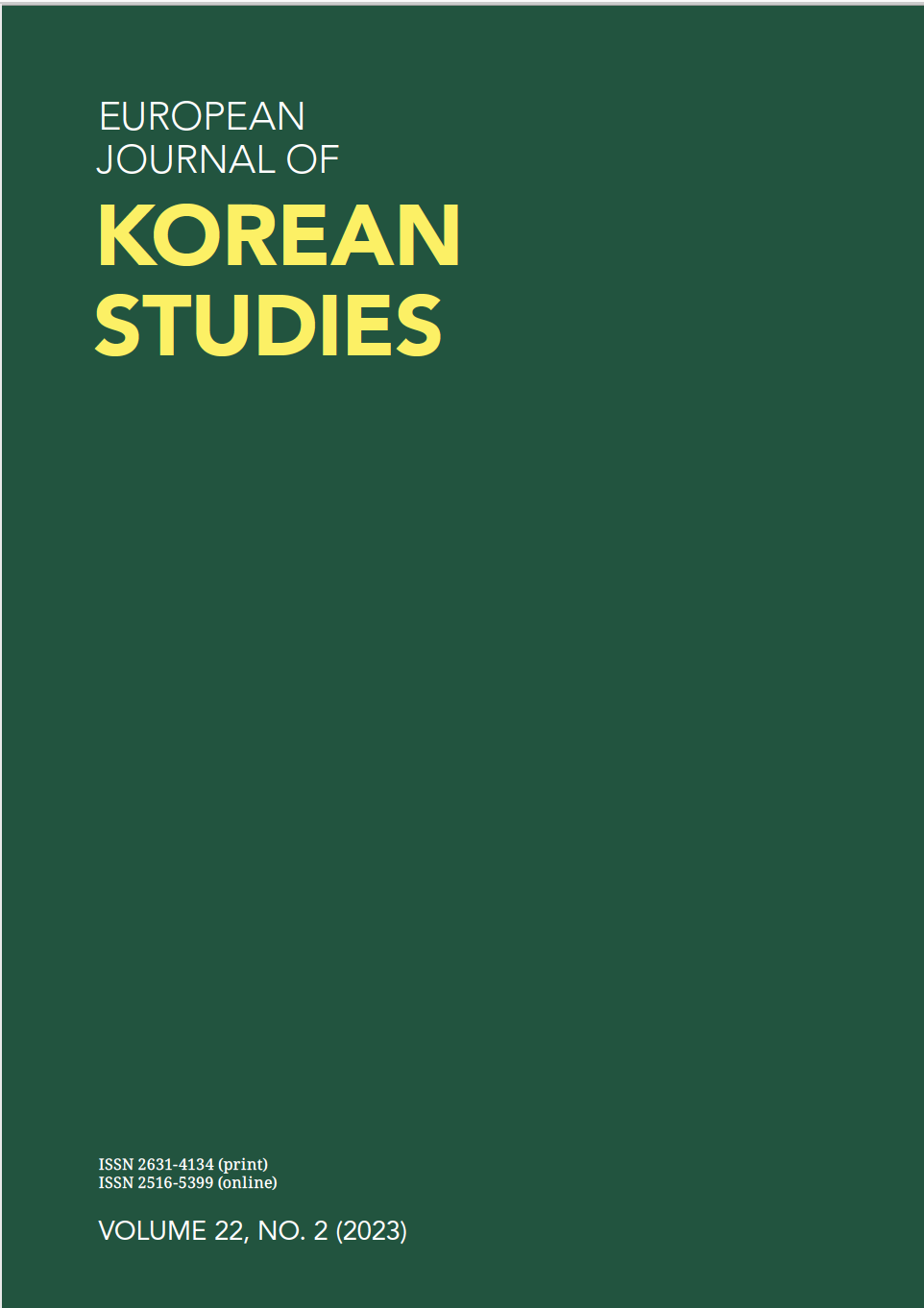
1) Yonson Ahn. “Maternal Practices of Korean Healthcare Workers in Germany" European Journal of Korean Studies, vol. 22 no.2 (2023), 11- 43, https://doi.org/10.33526/ejks.20232202.11
In this article, Yonson Ahn explores mothering practices primarily between the 1960s and 1990s in the families of Korean migrant healthcare workers drawing on personal accounts. They migrated to the former West Germany as “guest workers" and resided in Germany over the course of their working lives and/or returned to South Korea. This study charts the manner in which these migrant mothers navigated and balanced competing social discourses around mothering that emerged from the different cultural and historical backgrounds in a new host society. Special attention is paid to the way in which mothering is negotiated and experienced by migrant mothers in gendered family roles over the time—the period from childhood to adulthood—spent in the host country. Various practices and strategies for childcare arrangements and education in sustaining a migrant family in the host country are discussed. Another salient question to explore is the way the migrants' ethnic culture and values inform their ethno-specific mothering practices. In this respect, the demands, and aspirations of cross-cultural mothering to raise children with dual- cultural competence in both the culture of origin and that of destination are explored.
2) Co-authored with Jihye Kim, Yonson Ahn has published another article on Korean migration in Europe.
Jihye Kim & Yonson Ahn, “Gradual, Diverse, Complex—and Unnoticed: Korean Migration in Europe", European Journal of Korean Studies, vol. 22, no. 2 (2023): 1-10.
Despite the long and interesting migration history of Koreans to Europe and the constant and increased mobilities and movements between the two regions, in general, Korean migration is an area that has been substantially understudied, even in terms of the three major destination countries of the Germany, UK, and France. Korean migration in Europe has had a variety of motivations and followed dynamic trajectories in each European nation. This study helps to make up for current deficiencies, addressing issues previously underexplored and contributing to the development of existing theories and concepts in migration studies.
Current Research
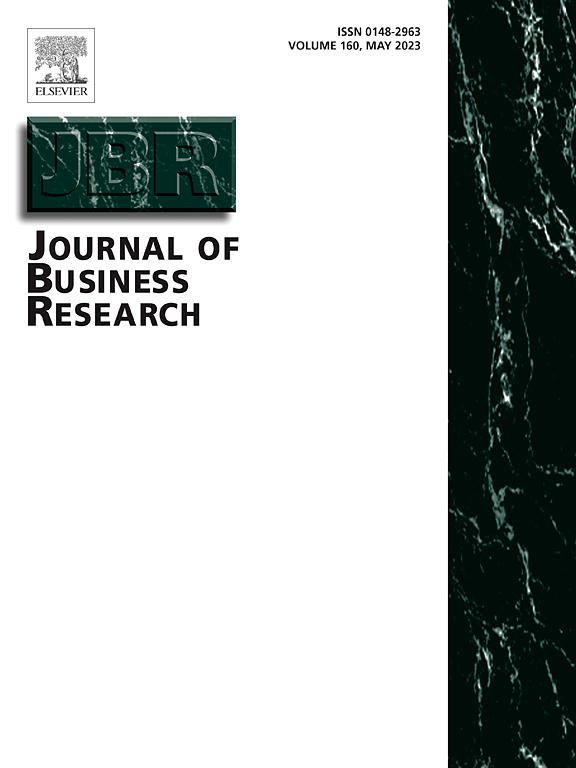
Na Zou, Cornelia Storz, 2023, Journal of Business Research, 161, 113821 [Published Online: 16 March 2023]
Abstract
Why do some entrepreneurs in developing environments thrive whereas others fail, even though they all face the same uncertainties? Prior research on entrepreneurial networks has attributed differences in business performance to variations in network structure. However, many entrepreneurs—such as necessity entrepreneurs—have networks with low structural variation. We show that variations in network content may be an alternative explanation for performance differences. Drawing on the resource-based view, we propose that entrepreneurs whose networks are characterized by low structural variation may benefit from variations in network content—namely, greater resource variety and more resource spanning. Our argument is supported strongly by a random sample of 200 Chinese necessity entrepreneurs working in Shanghai. By bringing network content to the analytical fore, we contribute to research on entrepreneurial networks, which has focused mostly on network structures. We further add to research on necessity entrepreneurship by examining how heterogeneous network content may influence business performance.
Current Research
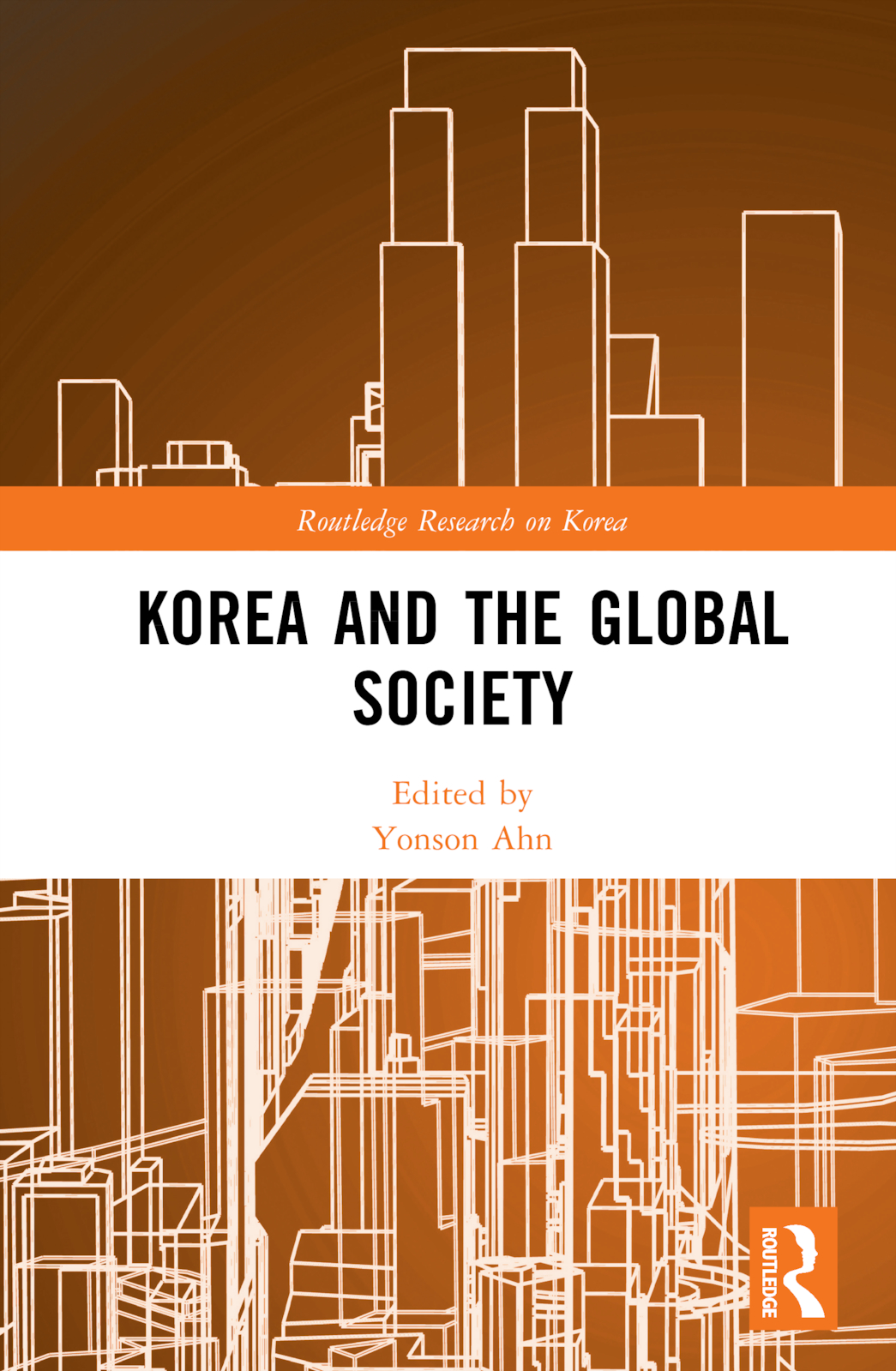
The core of this volume is an analysis of South Korea's engagement and reciprocity in global society that has developed out of the country's shift from aid recipient and migrant sender to aid provider and migrant host. The contributions approach this through the three main aspects of development cooperation, migration, and the media. These themes represent an interdisciplinary array of research that introduces and analyses interconnected and concurrent instances of reciprocity, convergence, tension, inclusion, or exclusion in navigating South Korea's interactional relations with global society, spanning regions and countries including Africa, Asia, the USA, and Germany.
This book is interdisciplinary covering a wide range of disciplines including sociology, gender studies, ethnic studies, media studies, IR, and area studies, in particular Korean studies.
The link to this book: https://www.routledge.com/Korea-and-the-Global-Society/Ahn/p/book/9781032293363#
Current Research

1) New Journal Article by Yonson Ahn on South Korean Im/migrants in South Africa
Yonson Ahn published an article in Korea Journal on 31st December 2022. The topic is 'Migration Trajectories of South Korean Im/migrants in South Africa'. Since the history of this migration destination is relatively recent and on a smaller scale compared to Korean diasporas elsewhere, to date there has been no associated study in the body of Korean diaspora literature. Drawing on in-depth interviews, she maps out the spatial trajectories of migration taken by Korean im/migrants to, from, and within South Africa. Complex issues and motivations that have informed these embodied movements and migration trajectories are explored. This study greatly contributes to the IZO's focus on research on Global East Asia by exploring an under-represented part of Korea/East Asian migration in the Global South whose journeys can be conceptualized within the multi-directional and onward geographic migratory trajectories across Global North-South.
Yonson Ahn “Unending Journeys: Migration Trajectories of Korean Im/migrants in South Africa" Korea Journal, vol. 62, no. 4 (Winter 2022), pp.137-170. doi: 10.25024/kj.2022.62.4.137
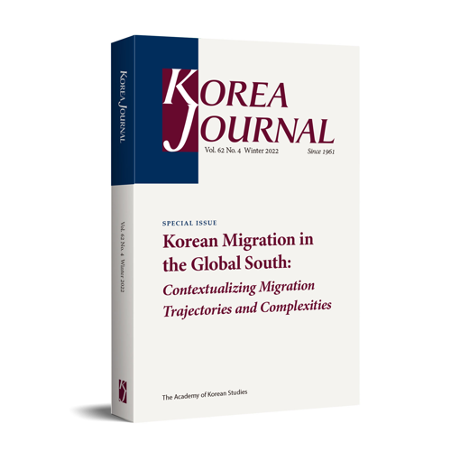
2) Yonson Ahn has published a journal article in an under-researched field on Korean Migration in the Global South.
Yonson Ahn together with Jihye Kim published another article in Korea Journal on 31st December 2022. This study is on South Korean migration in the Global South. Migratory trajectories and complexities in the North to South migration are explored. The authors address complexities in the socio-economic motivations and circumstances within which Korean immigrants operate in the Global South. These complexities can be seen in the opportunities, challenges and risks they encounter. Consequently, those in the South find alternative routes and options and diversify their trajectories with high mobility.
Yonson Ahn and Jihye Kim, “Korean Migration in the Global South: Contextualizing Migration Trajectories and Complexities", Korea Journal, vol. 62, no. 4 (Winter 2022), pp.5-17, doi: 10.25024/kj.2022.62.4.5
Current Research
Current Research, September 2022
Heike Holbig on the Canonisation of Xi Jinping Thought
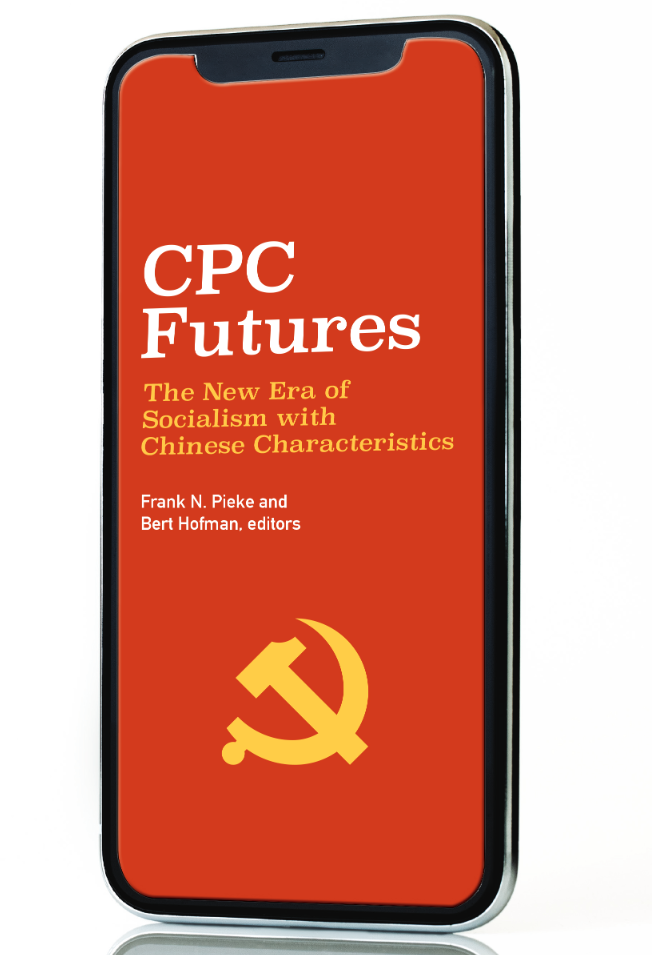
In this edited volume, China experts from Asia, the United States, Europe and Australia set out the future implications of trends in CPC ideology, politics and governance in Xi Jinping's “New Era." Published in September 2022, the collection offers clues on what the upcoming 20th Congress of the Chinese Communist Party will bring, what the next decade of party rule might look like, and what China's political elites do envision for the party's and the country's future. The book is distributed in Open Access.
Citation:
Holbig, Heike (2022). Canonising Xi Jinping Thought – Ideological engineering and its real-world relevance. In: Frank N. Pieke and Bert Hofman (eds.), CPC Futures. The New Era of Socialism with Chinese Characteristics, Singapore: NUS Press, 41-46. DOI: https://doi.org/10.56159/eai.52060.
Download: https://epress.nus.edu.sg/cpcfutures/9789811852060.pdf (Open Access).
Current Research
Current Research, June 2022
Sinophone Classicism: Zhiyi Yang on Chineseness as Temporal and Mnemonic Experience in the Digital Era
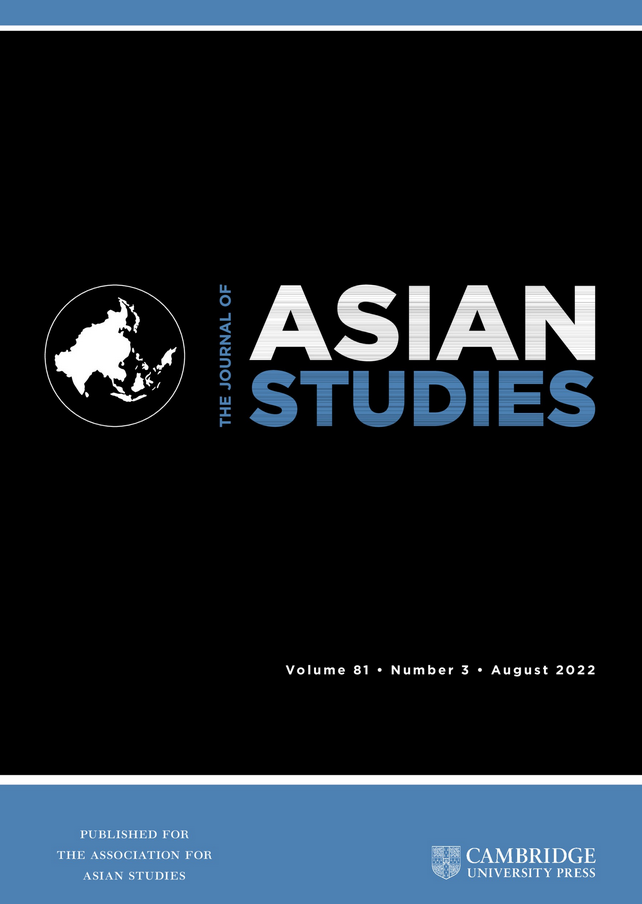
Prof. Zhiyi Yang elaborates on the concept of "Sinophone Classicism" in a new article in the Journal of Asian Studies, published in online first format by Cambridge University Press in June 2022.
In recent decades, highly heterogeneous literary and artistic articulations harking back to China's classical past have gained increasing currency in the global Sinophone space and cyberspace. Instead of dismissing them as “fetishisms" or authenticating them as “Chinese traditions," I propose “Sinophone classicism" as a new critical expression for conceptualizing this diverse array of articulations. It refers to the appropriation, redeployment, and reconfiguration of cultural memories evoking Chinese aesthetic and intellectual traditions for local, contemporary, and vernacular uses, by agents identified or self-identified as Chinese. This essay proposes a subjective, intimate, and reflexive way to experience an individual's culturally acquired “Chineseness" that is temporal, mnemonic, and often mediated by digital media. It joins recent scholarly efforts to dismantle the view of “Chinese modernity" as a monocentric and homogenous experience by refocusing on classicism as a kind of “antimodern modernism." It also joins the post-Eurocentric turn in global academia by hinting at a future of “global classicisms."
Current Research
Current Research, February 2022
Bertram Lang on China's Anti-Corruption Policy as Fragile Crisis Management
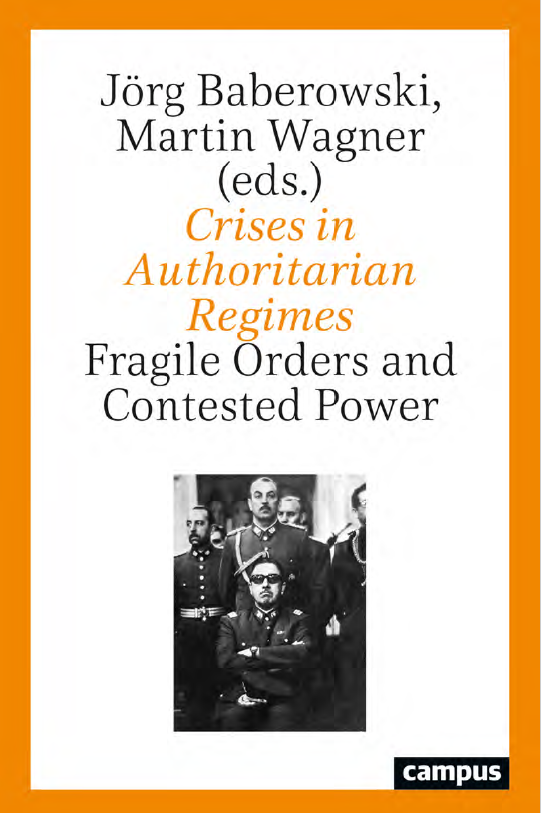
Based on quantiative text analysis of 6,957 articles published on the topic in Chinese newspapers, Bertram Lang analyses the trajectory of Chinese anti-corruption policies and discourses since the late Hu-Wen era until today. Using topic modeling and sentiment analysis, he shows how corruption was constructed as an existential crisis immediately before and after Xi's ascent to power and how domestic and international cases of corruption are treated in systematically different ways in Chinese media. At the same time, the analysis also elucidates the severe problems in framing anti-corruption during Xi's second term, where news reports strike and increasingly fragile balance between announcements of success and calls to persevere in a 'heroic' fight. Initially vocal voices calling for the institutionalisation of the anti-corruption struggle based on rule-of-law principles have been gradually muted over the past years.
Current Research
Current Research, January 2022
Iwo Amelung Examines Yellow River Hydraulics Financing During the Late Imperial Period.
In his paper on “The Cost of Security. Financing Yellow River Hydraulics during the late Imperial Period", Iwo Amelung investigates the effect of paternalistic views at the Qing court, inspired by Confucianism, on financing hydraulic projects on the Yellow River and on the Great Canal. On the basis of a detailed study of the existing documents he shows that expenditures for hydraulic engineering constantly increased well into the 1840s and eventually amounted to more than 20 per cent of the total expenditure of the central government. While research in the past generally assumed that the high costs of hydraulics were due on the one hand to ecological factors and on the other hand to administrative corruption and inefficiency, Amelung shows that the fiscal catastrophe was due mainly to the desire of the Qing emperors – and specifically of the Kangxi and Qianlong emperor – to bring as much relief to the peasant population as possible in accordance with the image of the “provisioning state" (von Glahn). The fact that after the relocation of the river bed in 1855 the responsibility for the control of river and canal was transferred to the regional administration can thus also be interpreted as an attempt to free the Qing state from financial burdens that were ideologically motivated. This was only partially successful and in fact it was no longer of great urgency because the Qing state in the last years of the empire managed to broaden its fiscal basis by introducing Lijin and the highly efficient maritime customs service. The restraint of the central government also implied a diminishing moral commitment from the state which added to the de-legitimization of the imperial government during the final phase of the empire.
Iwo Amelung, “The Cost of Security. Financing Yellow River Hydraulics during the late Imperial Period", in: Iwo Amelung, Bertram Schefold (eds.), European and Chinese Histories of Economic Thought Theories and Images of Good Governance, London: Routledge 2022, pp. 33-46, DOI https://doi.org/10.4324/9780367434496
- Studying at Goethe University
- International applicants
- Faculties
- Overview of study programmes
- Programme for refugees
- GRADE
- Goethe Business School (continuing education)
- Research at Goethe University
- Scientific news
- Goethe Welcome Center (for international researchers)
- Collaborative research projects
- Individual research
- Visiting fellowships
- Endowed chairs
- About the University
- News-in-brief
- University administration
- Campus locations
- Campus life
- University archives (German)
- Rhine-Main-Universities



